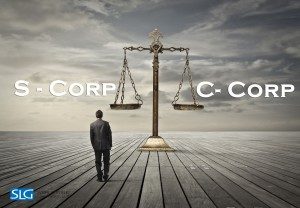Monthly rent is typically one of the largest operating costs for most businesses, particularly in areas with high rental values such as Palo Alto. However, non-financial terms of a commercial lease also have a direct impact on a business and its bottom line.
Because most standard commercial lease agreements tent to favor the landlord, negotiating a commercial lease that is favorable to the tenant requires an understanding of the local market and business, real estate law and contract law. Moreover, commercial landlord-tenant legal issues can be particularly complex and difficult to untangle without the guidance of an experienced real estate attorney.
Below, we will cover commercial lease FAQs, critical components of commercial leases worth reviewing carefully, specific ambiguities to look for when looking over and negotiating your rental agreement, and the benefits of retaining legal counsel to review and/or negotiate your commercial lease.
Commercial Lease FAQ
A commercial lease is a contract between a landlord and business that sets forth the rights and obligations of the respective parties with respect to the property being leased. Unlike residential leases, which govern the use of a property as a place to live, commercial leases only apply to the use of a property for business purposes.
Critical Components of Commercial Leases to Review
You should examine and review your commercial lease fully, paying special attention to the following key components:
- Rent: The base rent due, including possible escalations, but equally if not more importantly any “additional rent” due under the lease, which typically covers building-related expenses like property taxes, insurance, and maintenance and repairs
- Lease term: Length of the lease, including possible renewal options
- Security deposit: Amount of security deposit and the terms for its return
- Physical space: Description of the exact space to be rented and any applicable common areas
- Maintenance agreements: Who will maintain and/or repair the premises and how will the cost be allocated
- Subleasing: Terms that might allow you to sublease the property should the needs of the business or financial circumstances change
- Tenant improvements: What modifications you as the tenant may make to your rental space, and at whose expense
- Lease termination: Language specifying if, when, and how the lease may be terminated, and any associated penalties
- Use: the permissible uses to which the premises may be used.
- Parking: what, if any, parking accompanies the space under the lease? It is exclusive or non-exclusive?
Why Review My Commercial Lease?
It’s always a good idea to thoroughly review all legal documents, and commercial leases are no exception. An experienced real estate attorney at Startup Company Counsel can help you identify potential problem areas in your lease and can suggest amendments to lease agreements before they are finalized. Consider retaining legal counsel to help you with this process. At the very least, you should make sure to review your rental agreement and, if necessary, negotiate new terms to clarify potential ambiguities that may arise regarding:
- Lease amount and/or term
- Lease termination rights
- Lease term modification
- What constitutes a breach of the rental agreement
Speak with an experienced Attorney About Reviewing Your Palo Alto Commercial Lease Today
Let Startup Company Counsel guide you through the critical process of reviewing your commercial lease and ensure that your rental agreement is favorable to your business. Contact us today by calling (408) 441-7555 or contact us online. We are ready to discuss your commercial lease and this exciting new step for your Palo Alto business.



